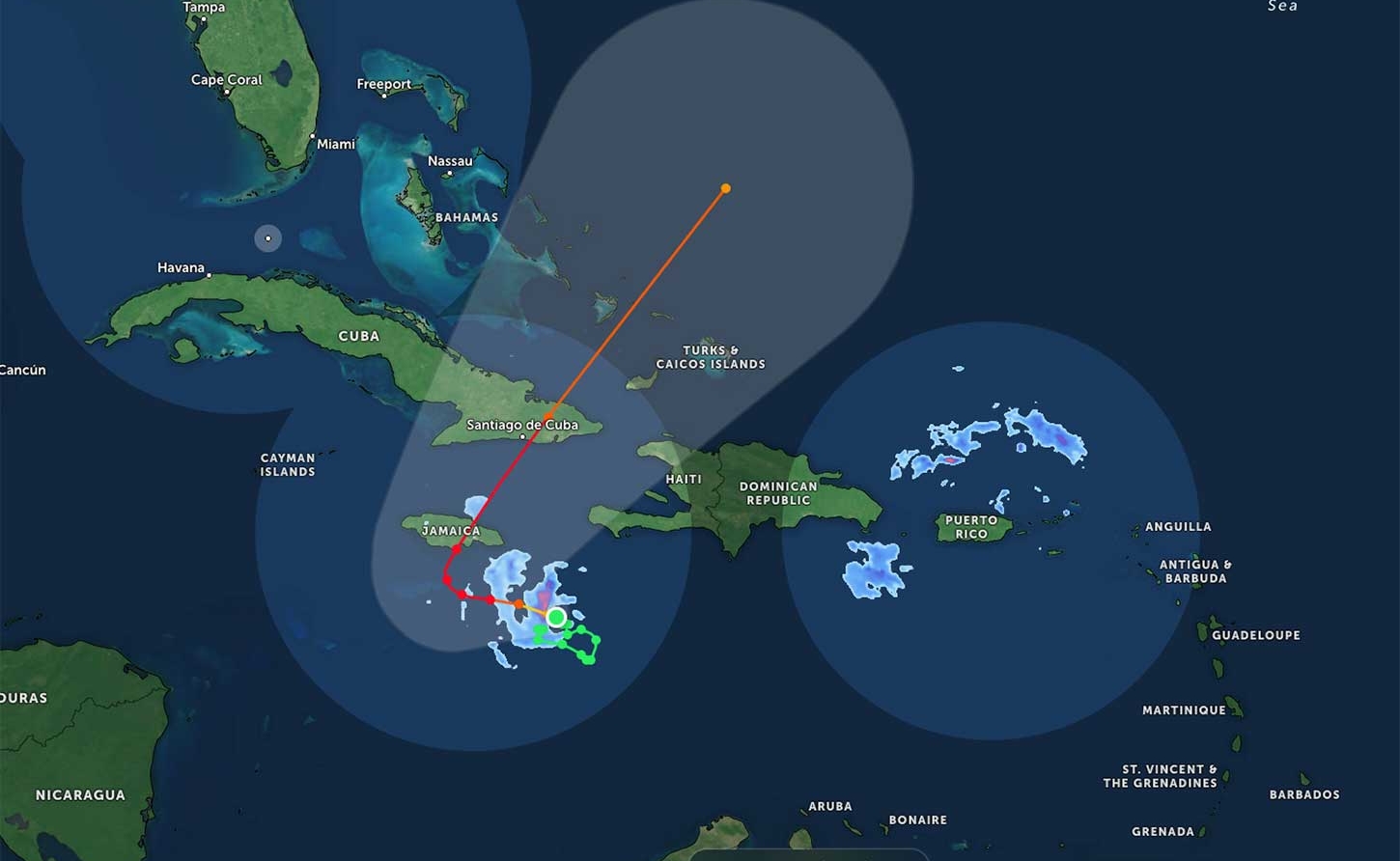JAMAICA | Tropical Storm Melissa Forces Jamaica-Wide Emergency Declaration: Sweeping Powers Activated

Prime Minister's unprecedented island-wide threat designation raises questions about emergency authority and civil liberties
MONTEGO BAY, Jamaica October 25, 2025 - As Tropical Storm Melissa continues its trek across the Caribbean, Jamaica's Prime Minister has taken the extraordinary step of declaring the entire island a "threatened area" under the Disaster Risk Management Act—a move that grants government authorities sweeping powers while suspending certain civil liberties in the name of public safety.
The declaration, which covers all 14 parishes from Portland to Westmoreland, activates emergency provisions that many Jamaicans have never experienced. Under the Act, authorized officers can now enter private premises without warrants or consent, control the movement of citizens, mandate evacuations, and commandeer resources deemed necessary for disaster response.
"This is a time when the powers that be should still be sensitive to our basic human dignity," notes legal commentary on the Act's implementation, highlighting the tension between emergency necessity and constitutional rights.
Unprecedented Authority
The scope of powers granted under Section 27 of the Disaster Risk Management Act is extensive. Authorized officers—including police, military personnel, and designated disaster coordinators—can direct citizens to leave their homes, seal or demolish structures deemed dangerous, disconnect utilities, and require individuals to provide "reasonable help" in exercising these authorities.
The Act also permits officials to control animal movement, destroy vegetation, erect barriers, and open or close toll roads without the usual bureaucratic processes. Critically, officers may "use such force as is reasonable in the circumstances" to exercise these powers.
For a population accustomed to constitutional protections, the legal framework represents a dramatic shift. Failure to comply with official directives carries criminal penalties under Section 52 of the Act, unless individuals can demonstrate a "reasonable excuse."
The Vulnerable at Risk
While emergency powers are designed to protect lives and property during natural disasters, civil liberties advocates have long warned about potential abuses during states of emergency. The source document acknowledges these concerns directly: "This is a time when the more vulnerable are at greater risk of human rights abuse."
Jamaica's history with emergency declarations—particularly the controversial States of Emergency used to combat crime in recent years—has made some citizens wary of broad government authority. The difference in this case is clear: Melissa is a natural disaster, not a security operation. Yet the powers granted remain virtually identical.
Community leaders emphasize that elderly residents, persons with disabilities, and economically disadvantaged Jamaicans require particular attention during evacuations and shelter operations. The Act mandates that designated shelter officers receive cooperation from citizens, but questions remain about adequate resources and accessibility.
A Call for Balance
Government officials would likely argue that comprehensive authority is essential for effective disaster response. Previous hurricanes and tropical storms have demonstrated that fragmented, parish-by-parish approaches can delay critical interventions. An island-wide declaration enables coordinated resource deployment and unified command structures.
The source material itself acknowledges this necessity: "Citizens have a duty to cooperate with the authorities for the effective management of disaster related concerns at this time."
However, the same document insists that "agents of the state will also do well in upholding and ensuring the best possible approaches in the interest of peace, justice, and the well-being of all."
What Happens Next
As Melissa approaches, Jamaicans face an unfamiliar reality: their government possesses extraordinary powers to protect them, but those same powers could potentially be misused. The declaration places significant responsibility on authorized officers to exercise their authority with "good conscience," as the legal commentary suggests.
Citizens retain the right to question directives that appear unreasonable or excessive, though the burden of proving a "reasonable excuse" for non-compliance rests with them. The declaration also doesn't suspend fundamental rights to dignity and humane treatment.
The storm will eventually pass. What remains to be seen is whether Jamaica's emergency framework can achieve its intended purpose—saving lives and protecting property—while preserving the democratic principles that define the nation during calmer times.
-30-
